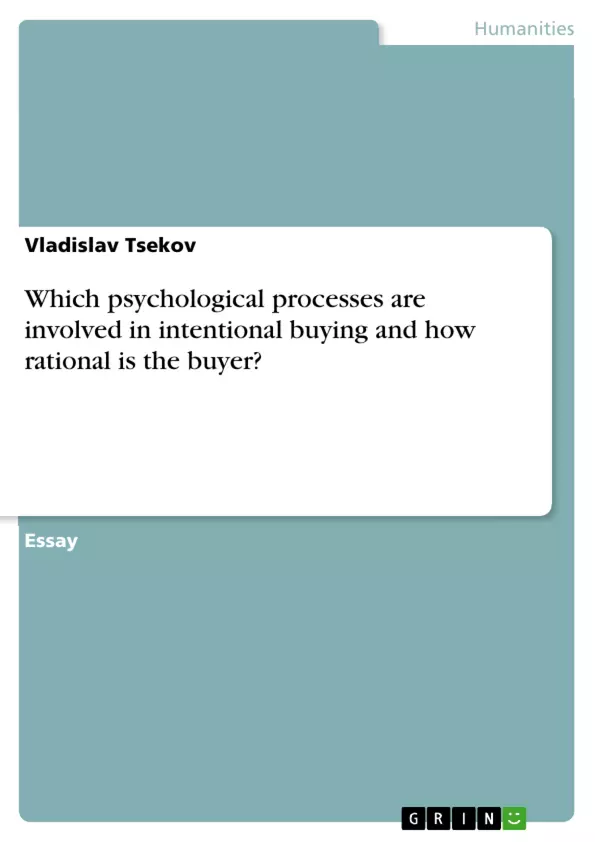Each day we face numerous decisions that determine the outcome of our life to a great extent. Whether we are rich or poor, happy or sad, good or bad - it all comes down to the decisions we make. It is therefore logical to assume that human beings have evolved to be experts in decision making.
For decades, Economists, Psychologists and Philosophers have struggled to answer this question by conceptualizing the way people make decision and by coming up with models that explain judgment and decision making. Over the last few centuries, models of rationality have been constantly changing and evolving. In 1654, Blaise Pascal and Pierre Fermat had a prolonged discussion about human rationale in gambling scenarios, giving birth to the rational choice theory. Its main assumption is that humans take into consideration every available information, cost and benefit associated with a decision and proceed to select the best choice amongst all available alternatives - the one that maximizes Expected Utility. This model, however, is inherently flawed, as it ignores elements such as cognitive biases and mental shortcuts (also known as heuristics) that could lead to deviations from the assumption of perfectly rational decisions. In response to the limitations of the rational choice theory, Herbert Simon proposed the notion of bounded rationality to compensate for flaws in human thinking and to take into consideration environmental constraints when making a decision. Bounded rationality suggests that humans act as satisficers rather than maximizers, aimed at finding a decision that is good enough, taken the amount of information and time that were available for making the decision. This framework applies to any decision making process – including consumer behaviour.
Therefore, this essay will argue that consumers are not perfectly rational agents, aimed at maximizing expected utility with each transaction. Rather, humans have inherent limitations to their information processing abilities leading to the development of cognitive biases and heuristics, which help them make decision faster and more efficient. This ability, however, comes at the cost of making suboptimal decision. To illustrate the point and to compare and contrast both models of rationality, we will use a practical example of a car purchase throughout the essay.
Table of Contents
- Introduction
- Perfect rationality – the economic man
- Bounded rationality
Objectives and Key Themes
This essay explores the psychological processes involved in intentional buying, questioning the degree to which buyers make rational decisions. It argues that while the rational choice theory posits perfect rationality in decision making, the reality is that human cognitive abilities are limited, leading to the development of cognitive biases and heuristics.
- The limitations of the rational choice theory in explaining consumer behavior
- The concept of bounded rationality and its implications for decision making
- The role of cognitive biases and heuristics in shaping consumer choices
- The impact of internal and external factors on buying behavior
- The practical application of these theories in a real-world scenario, such as a car purchase
Chapter Summaries
- Introduction: Introduces the concept of decision-making and its significance in shaping our lives. Discusses the evolution of models of rationality, including the rational choice theory and its limitations. Proposes the concept of bounded rationality as a more realistic framework for understanding decision making.
- Perfect rationality – the economic man: Explores the rational choice theory and its assumptions, including the idea of maximizing expected utility. Critiques the theory's limitations, highlighting its unrealistic assumptions about human cognitive capabilities and the availability of information. Uses the example of a car purchase to illustrate the theory's shortcomings.
- Bounded rationality: Presents Herbert Simon's theory of bounded rationality, which acknowledges the limits of human cognitive abilities and information availability. Argues that humans act as satisficers rather than maximizers, seeking a decision that is "good enough" given the constraints.
Keywords
This essay focuses on the concepts of rationality, bounded rationality, cognitive biases, heuristics, decision making, consumer behavior, and intentional buying. It examines the limitations of the rational choice theory and explores the practical implications of bounded rationality in explaining human decision making processes.
Frequently Asked Questions
What is the "Rational Choice Theory"?
It is an economic model assuming that humans process all available information to make the best possible decision that maximizes their expected utility.
What are the limitations of human rationality in buying?
Humans have limited information-processing abilities, which leads to the use of mental shortcuts (heuristics) and susceptibility to cognitive biases.
What is "Bounded Rationality"?
Proposed by Herbert Simon, this concept suggests that people make decisions that are "good enough" (satisficing) rather than perfect, given the constraints of time and information.
How do heuristics affect consumer behavior?
Heuristics allow consumers to make decisions faster and more efficiently, but they can also lead to suboptimal or irrational choices compared to a purely economic model.
Is a car purchase a rational decision?
The essay uses a car purchase as an example to show that while buyers try to be rational, they are often influenced by emotions, biases, and limited information, fitting the model of bounded rationality.
- Quote paper
- Vladislav Tsekov (Author), 2018, Which psychological processes are involved in intentional buying and how rational is the buyer?, Munich, GRIN Verlag, https://www.grin.com/document/446925



